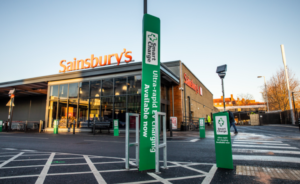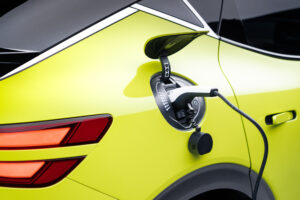Low emission freight developments unveiled
Two innovations in the alternative-fuels market for commercial vehicles were on display at the Freight in the City Expo at London’s Alexandra Palace yesterday (7 November).
This includes what has been described as a ‘world first’ for low emission vehicles using liquefied petroleum gas (LPG).
Among the major innovations announced at the show, which showcases the future of urban commercial vehicle operations, UK LPG supplier Calor launched a fuel partnership with Dutch electric vehicle provider EMOSS.
The partnership will see the two firms deliver the first LPG range extender for a rigid gas cyclinder truck. The vehicle will use LPG to drive an electric generator, charging the battery which provides drive to the electric motors.
According to the companies, the LPG system increases the vehicle range compared to operating with a battery-only system from 40 miles to 250 miles. Control of the system also allows it to be switched into pure electric motor to enter areas where emissions restrictions are in place.
Announcing the innovation, Paul Blacklock, Calor’s head of strategy and corporate affairs, said: “As the UK government continues to put pressure on the transport industry to find cleaner ways of operating, the new LPG range extender with EMOSS presents an exciting opportunity for rigid trucks.
“With trucks fitted with LPG range extenders able to switch entirely to electric when operating in city centres or air quality zones, while already offering improved emission performance when compared with conventional fuels, we are excited to announce this ground-breaking transport innovation.”
Gnewt Cargo
Also launched at the show was one of 18 Nissan Voltia ENV-200 electric freight vehicles, which will be a part of a trial to reduce emissions from delivery vehicles in the capital by last-mile delivery firm Gnewt Cargo.
Backed by the Mayor of London and funded by the Office for Low Emission Vehicles’ Low Emission Freight and Logistics trial scheme, the initiative aims to demonstrate the use of low and zero emission vehicles in commercial fleets.
The project will also install and test on-site charging infrastructure to support the vehicles being tested at Gnewt’s depots, from which it will be carrying freight for companies including Hermes, DX and TNT. The first of the vehicles is expected to be on the road from this month.

















